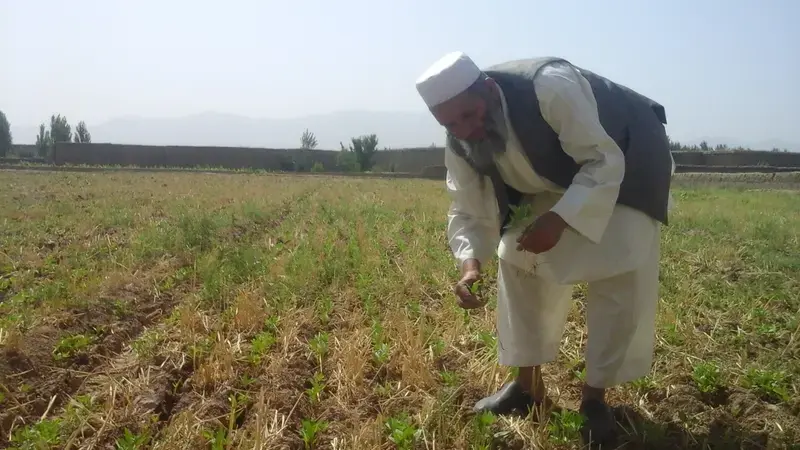Post-conflict rehabilitation

Conflict not only takes a toll on human life but can also threaten the survival of agricultural production systems. Post-conflict countries are often forced to contend with widespread devastation and significant levels of poverty, hunger, and malnutrition. Rapid and sustained efforts are needed to raise productivity, restore essential infrastructure, and rebuild human and institutional capacities.
Over the past four decades, ICARDA has developed considerable expertise in post-conflict agricultural reconstruction – a useful skillset that has been applied to rebuild agricultural sectors in various countries torn apart by war and instability, including Afghanistan and Iraq.
ICARDA’s contributions are wide-ranging and have included: efforts to rebuild national plant genetic resources, developing rapid systems for seed distribution, protected agriculture, the introduction of value-added crops, improved livestock production, new forage crops, and rainwater harvesting.
Selected post-conflict impacts and initiatives (1977-2017):
- A partnership with Afghanistan’s Ministry of Agriculture, Irrigation and Livestock has provided quality seeds of cereals, vegetables, and forage crops to farmers in several provinces. In recent years, five wheat lines, two barley lines and two chickpea lines have been identified for release. Some 74 wheat lines, 226 chickpea genotypes, and 35 barley lines barley lines were also selected for further evaluation.
- The HSAD initiative improved the incomes of Iraqi farmers and agribusinesses by strengthening agricultural value chains. It targeted key crop commodities crucial to Iraqi food security and eased value chain constraints, raising the competitive potential of the country’s agricultural sector. Activities included: improving extension services, strengthening the capacity of beneficiaries, and reforming agricultural policies, regulations, and institutions.
- The ICARDA-initiated Future Harvest Consortium brought together national and international partners in 2001 to address immediate hunger and food security in Afghanistan, and put the country’s agricultural sector on a more sustainable long-term path. The initiative combined improved crop varieties, stronger seed systems, capacity-strengthening, improved soil and water management, livestock productivity, and efforts to rebuild research stations with seed health and testing labs.
